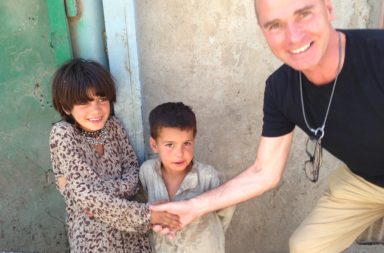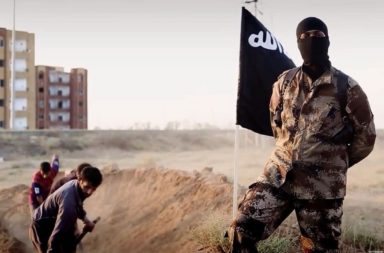Is ISIS planning their next attacks in Europe? In Germany?
- Germany was lucky as no direct attack has reached the country yet. The country is on high alert.
- 10 German tourists were killed by an ISIS-bomb in Istanbul in January.
- In Hannover a 15 year-old girl recently attacked and hurt a federal policeman with a knife, influenced by ISIS propaganda.
- 550 Germans left the country to fight with the Islamic State.100 were killed. Many have returned home.
- Hans-Georg Maaßen, die president of the German international intelligence service (Bundesverfassungsschutz), counts 1,100 Islamist extremists as well as a pool of 8,650 Salafists, with more joining each day. “The IS wants to attack in Germany”, he said. Almost all ISIS fans are Salafists, but not all Salafists support ISIS.
- Berlin is supporting the anti-ISIS-forces with reconnaissance jets from Turkey and delivering weapons to the Kurds in Iraq
- Germany is very popular in the Arab world, and an attack is disputed among the radicals as counter-productive. Many Arab radicals still admire Adolf Hitler. Germany was never a colonial power, and was even fighting Great Britain or France in World War I and II in the Arab World. Most Arabs admire the Germans for their technology, like BMW or Porsche, and friendliness to immigrants and enjoy the best image.
- As well the country is an important transit area for ISIS, where they are nevertheless under heavy pressure.
As Europe continues to reel from the terror attacks experienced in Brussels less than one week ago, it is of particular concern to security forces to now see ISIS launching calls for copycat attacks to be made.
- Near Munich, two foreigners were arrested with connections to ISIS yesterday. On December 31, 2015, the train stations were closed after information that IS will attack the capital of Bavaria. Nothing happened.
- On March 30th, the IS-affiliate Furat Media published an image of the Cologne-Bonn airport (pictures) on the Twitter channel of ISIS, suggesting that this could be the next target. Indeed, with the caption (in German) reading “what your brothers can do in Belgium, you can do too”, this image appears to have raised alarm bells for many across the continent.
- A terror couple was send to Berlin in February, but were arrested.
Responding to the threat in March, one spokesperson for the Interior Ministry of North-Rhine Westphalia (the state to which Cologne and Bonn belong) briefed the media, “we take this propaganda of ISIS very seriously” thereby supporting the claims in local newspapers that investigators were evaluating the threat.
The images, circulated by Furat Media, include a picture of fighter jets with bloodied civilians, and one of the German chancellery buildings in Berlin in flames.
Meanwhile, representatives of the federal police authorities , the BKA, acknowledged, “we are aware of this material and our experts are checking it… It is clear that Germany is the focus of international terrorism and that attacks could happen, but this material doesn’t change our security assessment”. Adding to these concerns, the federal police chief Holger Muench recognized that the Brussels attacks had invigorated ISIS to continue with further “spectacular” attacks in Europe. Nevertheless, authorities remain steadfast that their security assessment for the region has remained unchanged.
These new threats follow on from recent efforts in Brussels, as the Islamist group seeks to form part of a broader regional destabilization effort. An American security official briefing the media recently confirmed that this was indeed an attempt by ISIS to demonstrate their ability to retaliate, following the arrest of one of its own.
The arrest of Salah Abdeslam preceded the attack in Brussels by only a number of days, supporting the theory that this most recent incidence of terrorist violence was brought forward once ISIS militants feared Mr Abdeslam to be cooperating with Belgian authorities.
However, another possible explanation for the renewed attention on the region is that as ISIS continues to suffer sustained attacks in battlefields across Syria and Iraq, and is now looking to renew support for its brand by encouraging public attacks from sympathizers. Indeed, the link between these two streams of activity appears clear, given that ISIS is focusing its attention on those countries currently supporting the US led air strikes against ISIS in the Middle East.




